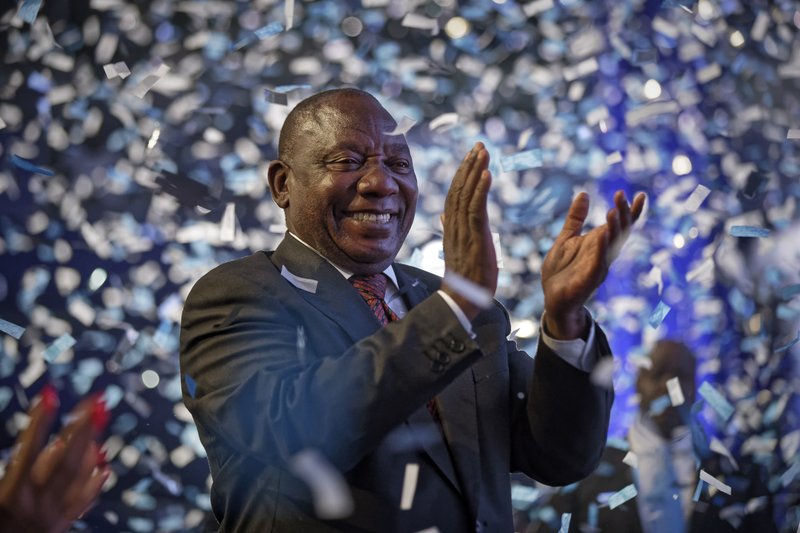PRETORIA, South Africa -- South Africa's ruling African National Congress on Saturday marked its weakest victory in national elections in a quarter-century, while President Cyril Ramaphosa declared that the vote had given him and others "a firm mandate to build a better South Africa for all."
With all votes counted, the African National Congress had won 57.5% of the vote, the electoral commission said. It was the worst-ever showing at the polls for the party of the late Nelson Mandela that has ruled since the end of the apartheid system of racial discrimination 25 years ago. The party won 62% of the vote in 2014.
Voter turnout was another low at 65%, reflecting the frustration of many South Africans after corruption scandals around the African National Congress that led former President Jacob Zuma to resign last year under party pressure. Turnout was 74% in 2014.
Ramaphosa, a Mandela protege, has vowed to clean up the rot and apologized to South Africans. But his new five-year term is threatened by Zuma allies within the African National Congress' leadership, who could pressure the party to oust him from power.
Widespread disillusionment over the African National Congress and long-standing issues of high unemployment and poor delivery of basic services had been expected to give top opposition parties a boost in Wednesday's election. A record 48 parties were on the ballot.
The top opposition party, the liberal Democratic Alliance, slipped in its share of votes, however, winning 20.7%, down from 22.2% in 2014. The populist Economic Freedom Fighters in just their second showing in parliamentary and presidential elections did gain ground, winning 10.7% of the vote, up from 6.3% five years ago.
In South Africa, the president and parliament are not elected directly. The number of votes won by each party determines how many representatives are sent to the national 400-seat legislature. The president of the country is the leader of the party that gets the most votes. The African National Congress won 230 seats, the Democratic Alliance 84 and the Economic Freedom Fighters 44.
With the election over, some South Africans looked forward to moving on.
"I knew that the ANC would win the elections so my vote for them did not go waste," said Karabo Kgole, a gas station attendant in Pretoria.
A Section on 05/12/2019
